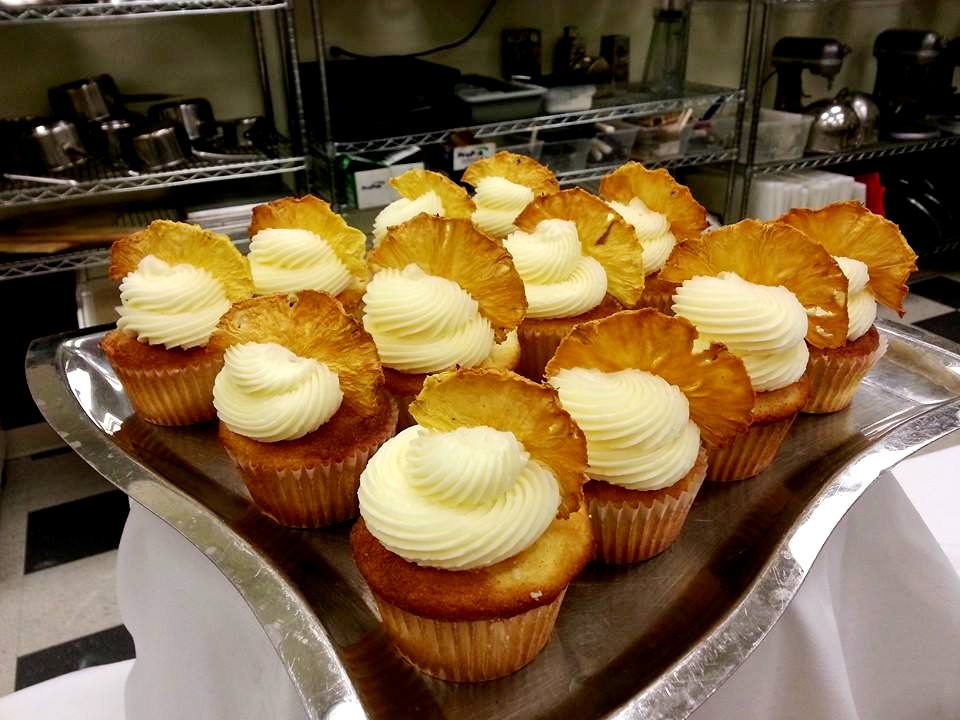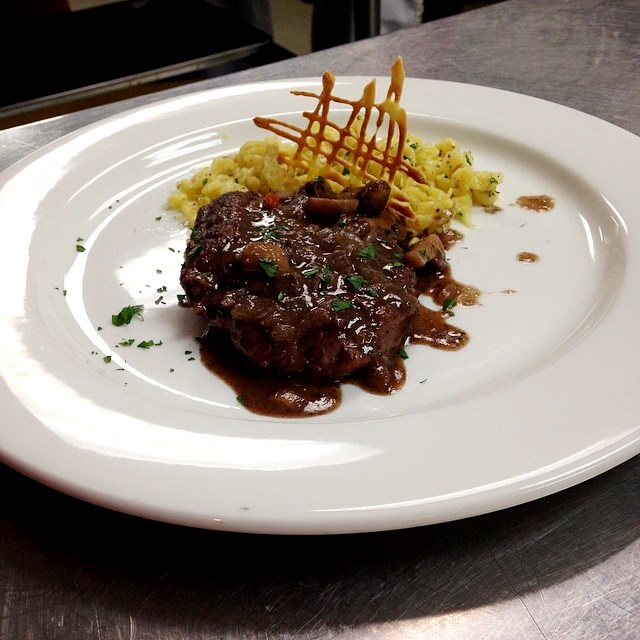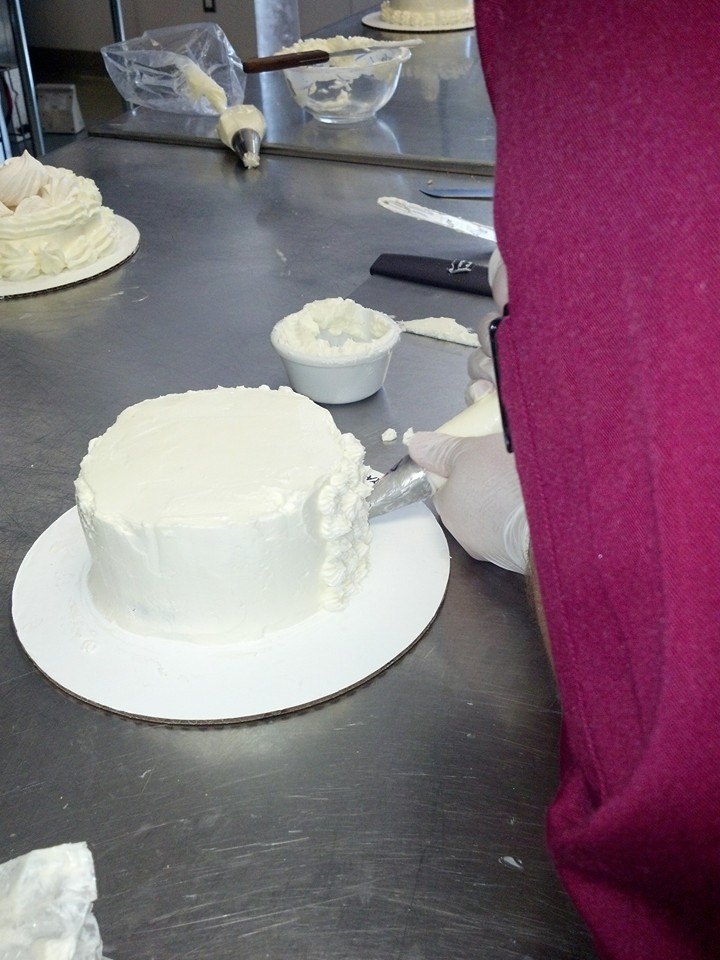By: Ryan Hodros, Culinary Arts Student
Student Criticism is a hard thing to cope with. You pour your heart and soul into something you really care about, and you stand watching it like a sandcastle as people walk by, praying that none of them is going to kick your work to pieces. Whether or not they like to admit it, criticism is one of the greatest fears nibbling at most artists’ nightmares.
“Bold words coming from a critic,” you might say, but I don’t say this as someone who judges other people’s work, but as an aspiring artist. Every time I open up Microsoft Word, I stare blank-facedly at that sea of white for longer-than-normal, my stomach in knots because I know, as soon as a start pressing keys, I’m vulnerable. That blank sheet is my shield, and as I type, I perforate it more and more until I’m completely defenseless.
Kitchen work is no different. I can’t tell you how many laboriously-planned, intricately scheduled dishes were almost hastily re-worked or completely torn down just before the start of a practical exam because I lost faith in what I originally had in mind. A new plan made up on the fly doesn’t have to stand up to scrutiny because THE TEST IS IN FIVE MINUTES!

The cop-out answer to this conundrum is “experience will cure you.” I really wish I could say that, brush my hands off, and end the article. But it’s simply not true. I’ve been writing in one form or another (professionally and unprofessionally) for over twenty-five years. I distinctly remember tottering over to my mom as a five-year-old and handing her my first ever short story. I returned to my room as she read and sat amongst my Legos and action figures, eyes agog in horror at what I’d done.
“What have I done? How could I let someone read that? What if she doesn’t like it? What if I just wasted all my time?” Of course, I was five, so I didn’t actually say any of that. What I really did chew on a 2X4 Lego piece because my stomach hurt so much, but I didn’t want to cry. I’d like to think that feeling could be roughly translated into the above.
When my mom told me how proud she was of me, heaping me with praise for my little story, I didn’t really feel pride or triumph so much as relief. There was exhilaration, sure. But it’s the exhilaration you get from narrowly avoiding danger. I’ve never jumped out of a plane, but I’d imagine it’s similar to the feeling you get when your chute finally opens, and “THIS WAS THE WORST IDEA EVER” changes to “Okay, this wasn’t a huge mistake…”
Chefs have it worse than writers. When I write an article, a story, or a book, I do it once and it’s done. I can forget it exists and go play video games. But chefs have to remember how a dish is made because they have to do it over and over and over. And every time you do it, there’s always that “Did I screw this up?” vulture circling overhead, waiting to pick the meat off the bones of your self-esteem.

And that feeling doesn’t go away, so don’t think time is the solution. Instead, the solution is to purposefully and consciously build up your own confidence. Again, “Bold words after the Lego story.” But that’s the only way out, especially when you’re starting. It becomes almost a religious experience where you create your own mantras in order to keep the demons of doubt at bay.
“I sampled it, it was good. I sampled it, it was good.”
“Stick to the plan, the plan is solid. Stick to the plan, the plan is solid.”
“You are good at this, this was a good idea. You are good at this, this was a good idea.”
All of these are good things to keep running through your head as you go about creating something, whether it’s in a kitchen, behind the bar, at the computer, or facing a crowd. But I find that the most useful mantra—one that I use almost every day, is this:
“You are not perfect, your work cannot be perfect. You are not perfect, your work cannot be perfect.”
In a world of 100%’s, grading scales, written evaluations, and standardized testing, it’s easy to start quantifying your own worth as a person. Getting a 75% on a test can easily lead to thoughts of “I’m only worth ¾ of a person!” But that’s not the case.
Sure, grades are important, but they don’t define you as an artist or a human being. Criticism should be (but isn’t always) about helping you improve your craft, but try to take it in that way as much as you can. Force yourself to look at your 75% and say, “Here’s what I could have done better.” That simple thought can be the difference between prep chef and sous chef; sous chef and executive.

So what’s my point here? My point is that it’s easy growing up to think that art is easy. You enjoy doing it, so doing it professionally should be all sunshine and rainbows. But you quickly realize it’s not. Sometimes it’s like jumping out of a plane and praying that your chute opens. Sometimes that’s how it feels every single day.
But in the end, what’s the alternative? If you’re thinking about coming to Auguste Escoffier, it’s because you want to become a culinary artist. Could you really give that up just because it’s scary? Resign yourself to something you don’t like doing simply because it’s safe?
An artist must be fearless. That’s easier said than done, but remember, you don’t have to be fearless every second of the day—just during that breathless moment when someone is experiencing your work and you’re waiting for them to kick down your sandcastle. Stick to your mantra, and you will get through it.
“I am a chef, I am not afraid. I am a chef, I am not afraid.”

